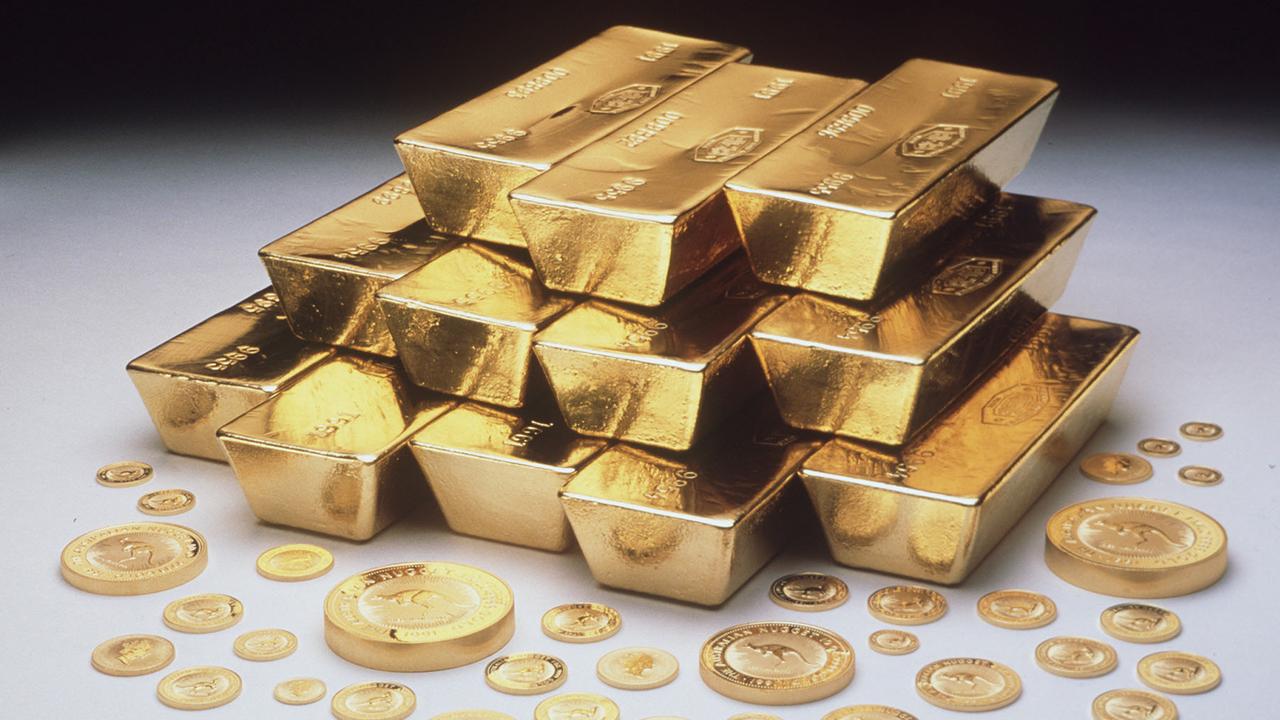The chair of the Perth Mint says its dealings and trade of gold actually increased following a damning ABC report, showing investors weren’t scared off.
The Mint was hurled into the spotlight in March when a Four Corners report exposed problems with the Mint’s adherence to anti-money laundering rules enforced by the Australian Transaction Reports and Analysis Centre (AUSTRAC).
The ABC report also uncovered several instances of gold bars the Mint was trying to sell to the Shanghai Gold Exchange being knocked back because they didn’t meet the Exchange’s high gold purity threshold.
That prompted a Senate inquiry, launched in July, which held a public hearing in Perth on Friday.
The Perth Mint is owned by the Western Australian government, and is the only government-owned and guaranteed precious metals enterprise.
Perth Mint Chair Sam Walsh fronted the inquiry on Friday, telling senators the Mint’s international reputation had not been damaged by the media focus.
“Clearly reputation is a major issue for us in terms of how we do business … I think the best tangible measure of how our customers responded to this is in relation to the trade we’ve conducted following the media commentary,” Mr Walsh said.
“If you take out customers at the time of the intense media focus, our trade actually increased rather than decreased.
“So in terms of the international aspects of the reaction … people understand what we’re doing, they realise from time to time in any business there’ll be issues, but they also accepted that we’re taking proactive steps to remediate the issues.”
Mr Walsh added while some media reports showed the Mint’s gold sales dropped in August, he said that was because of movements in the world economy.
“That applies to all coin-makers, not just Perth Mint … we are a commodity business; it does go up, it does go down,” he said.
“At the same time we’ve seen some slowing in demand for coins, we’ve also seen the gold price increase … that purely and simply relates to uncertainty in the world.”
The Mint’s trade of gold dore (bars of mostly gold, some silver, and other alloys), didn’t dip in the wake of the Four Corners revelations. Perth handles 80 per cent of Australia’s gold dore intake.
Asked about how the Mint had handled the lack of accountability that saw it fail to report transactions to Austrac on some occasions, Mr Walsh said the WA Auditor-General had acknowledged Austrac reporting has since improved.
In her opening address to the inquiry, Auditor-General Caroline Spencer said the Mint was in a better shape financially than it was five years ago.
“My view is that it got a little adventurous, pushing into new markets, new products, and new customers, but with a failure to fully appreciate the additional risks and obligations those changes brought,” Ms Spencer said.
“Perhaps most significantly it didn’t build the momentum necessary to keep pace with the maturing regulatory obligations regarding anti-money laundering and counter-terrorism financing, which left it playing catch up with that particular regulatory framework.”
She added it would be unfair and inaccurate to suggest the Mint did nothing about this, rather, they just weren’t doing enough to fulfil growing compliance expectations.
Part of the Four Corners report focused on an incident in which notorious former bikie Dayne Brajkovich only needed to show his driver’s licence to purchase $27,000 worth of gold from the Mint gift shop in June 2022.
Austrac rules state customer’s information needs to be scrutinised to make sure gold isn’t being used to fund terrorist activity, or aid in money laundering.
WA’s Mines Minister Bill Johnson and representatives from Austrac will also front the inquiry on Friday afternoon.
